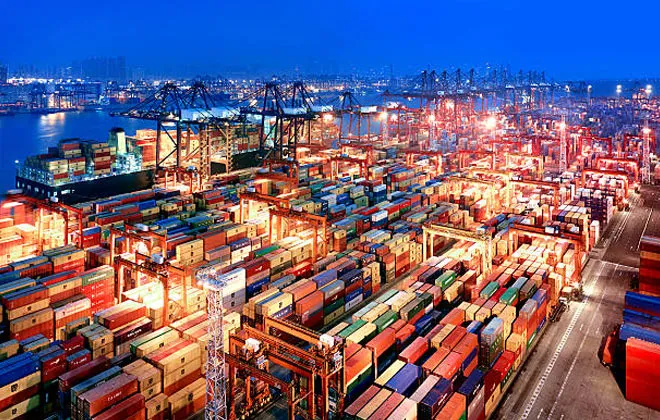-
CENTRES
Progammes & Centres
Location
Adopting a uniform approach to climate-friendly trade regulations could be detrimental to developing countries and could jeopardise future cooperative efforts

This piece is part of the series, Governance Propositions of 2022
Free trade has faced much flak during the last decade. The criticism has been largely due to its inability to deliver socio-economic equity. Trade has been widely vilified for economic losses suffered by wage earners, as it encouraged offshoring and reshoring of industrial production to new locations. It’s been equally condemned for increasing the wealth of the wealthy, notably owners of capital and knowledge, managing global production. The ‘dark’ side of global trade and economic globalisation has been further highlighted in the context of the COVID-19 pandemic, with easy movement of people being identified by national governments as the biggest source of the contagion.
Trade is in dire need of shedding its battered image and acquiring a benign one. This has forced trade policymakers to conceptualise ways of making trade policy deliver tangible welfare-enhancing outcomes. Growth of ‘green trade’ agendas are central to these efforts. Aligning trade policies to global climate goals will be a top priority for the world in 2022 and in the years to follow. Considerable energy will be devoted to crafting global and regional trade rules for enabling them to contribute to sustainable development, by reducing carbon emissions and promoting adoption of clean and environment-friendly technologies.
The ‘dark’ side of global trade and economic globalisation has been further highlighted in the context of the COVID-19 pandemic, with easy movement of people being identified by national governments as the biggest source of the contagion.
If the World Trade Organisation’s (WTO) 12th Ministerial Conference (MC12) scheduled on 30 November 2021 hadn’t been postponed due to a fresh surge in COVID-19 infections, the world might have had a multilaterally endorsed work plan for making global trade effectively combat climate change. The articulation of such a work plan was inevitable after the successive iterations on the necessity of promoting climate-friendly trade by the G7 and G20 groups at their summits in 2021. The urgency of making trade deliver on climate became even more imperative after the tangible outcomes achieved by the COP26.
Making trade deliver on climate through green trade agendas will go a long way in dispelling the notion of it being a perpetrator of economic and social inequalities.
The WTO—notwithstanding the indefinite postponing of the MC12 and the lost opportunity of pronouncing a climate-friendly global trade agenda—is committed to the cause of global green trade. This is evident from its efforts to put environment at the core of multilateral trade deliberations by enabling structured discussions amongst members, and simultaneously on the plurilateral initiatives of plastics pollution, fossil fuel subsidies, and sustainability.
Multilateral efforts to align trade closely to deliver outcomes achieved by the COP26, such as reaching emission reduction goals and facilitating adaptation, should trickle down to narrower trade policy discussions as well. More and more of the Free Trade Agreements (FTAs) being discussed across the world are bringing in environment and climate-change concerns within their scope.
The efforts to posit climate at the heart of trade talks and securing green trade agendas are going to create a new set of trade policy challenges. This is inevitable, as traditionally, trade policy and climate action have been taken as mutually exclusive. With the exclusion being gradually discarded, the perspective on trade policy regulations needs to be accommodated accordingly, leading to more policy dilemmas.
More and more of the Free Trade Agreements (FTAs) being discussed across the world are bringing in environment and climate-change concerns within their scope.
The dilemmas will be more for large developing countries like India. India is a pertinent example of a country engaged in wide-ranging FTA talks with several partners, many of whom will insist on ‘environment-friendly’ trade policies being planted firmly in the FTAs. India, however, might find it difficult to oblige.
India’s ongoing FTA talks with the European Union (EU) can face these contestations. The EU’s proposed carbon-border adjustment mechanism (CBAM), advocating ‘carbon prices’ or higher tariffs on carbon-intensive imports into the EU will be difficult for India and several other developing countries to accept. UN studies point to India, Brazil, and South Africa being poised to experience large drops in metal exports—iron, steel, and aluminium—to the EU following the implementation of the CBAM.
Green trade agendas, ostensibly, require discouraging cross-border movement of carbon-intensive products, while encouraging more flows of climate-friendly products. But these agendas, notwithstanding their in-built appeal, need to be promoted with care within trade frameworks. Forceful implementation might again see trade delivering imbalanced and iniquitous outcomes.
Pursuing a regulatory approach in trade and climate talks that doesn’t allow sufficient flexibilities to participating members will enhance mistrust and prevent progress on global climate goals.
For India and many developing countries, the benefits of pursuing a green trade agenda need to be assessed against perceived costs of job losses, lower incomes, and displacement of workers and producers of carbon-intensive sectors like steel and refined petroleum products, whose exports will certainly decline.
As noted in such trade-offs time and again, advancing a ‘one-size-fit-all’ regulatory approach can be heavily unproductive. Unless countries and businesses across-the-board are convinced about climate-friendly trade policies benefitting all and hurting none, reaching mutually acceptable conclusions in trade negotiations will be difficult. Furthermore, pursuing a regulatory approach in trade and climate talks that doesn’t allow sufficient flexibilities to participating members will enhance mistrust and prevent progress on global climate goals.
As the world ushers in 2022 and trade readies itself to acquire more prominent humane and inclusive shades, it is seized with a great opportunity to deliver solidly on a global climate agenda. The temptation of reaching quick results, however, can jeopardise the prospects. Sensitive and calibrated strategies for green trade agendas can take time. But it will be worth the wait.
The views expressed above belong to the author(s). ORF research and analyses now available on Telegram! Click here to access our curated content — blogs, longforms and interviews.

Dr Amitendu Palit is Senior Research Fellow and Research Lead (trade and economic policy) in the Institute of South Asian Studies (ISAS) in the National ...
Read More +